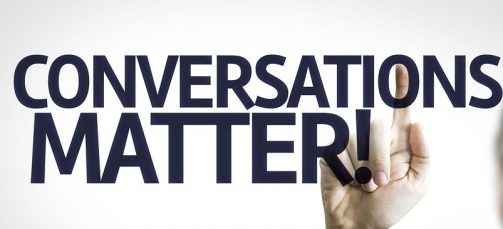How much do you understand about difficult conversations? Since they are inevitable, we’d better learn how to handle them. Fifteen years of research at the Harvard Negotiation Project has produced some interesting information about what goes on during difficult conversations.
In Difficult Conversations: How to Discuss What Matters Most, by Douglas Stone, Bruce Patton, Sheila Heen and Roger Fisher (Penguin Books, 2010), the authors explain there are three basic kinds of conversations, no matter what the subject.
In each of these conversations we make predictable errors that distort our thoughts and feelings.
- The “What Happened?” conversation. There is usually disagreement about what happened or what should happen. Stop arguing about who’s right: explore each other’s stories and try to learn something new. Don’t assume meanings. Disentangle intent from impact. Abandon blaming anyone and think in terms of contributions to the solution.
- The “Feelings” conversation. Every difficult conversation also asks and answers questions about feelings, which are formed in response to our thoughts based on negotiable perceptions. Are they valid? Appropriate? Often feelings are not addressed directly and thus they interfere with the conversation even more.
- The “Identity” conversation. This is where we examine what’s at stake: what do I stand to lose or gain? What impact might this have on my career, marriage, self-esteem, our relationship? These issues determine the degree to which we feel off-centered and anxious.
Sometimes a third party can help facilitate difficult conversations. Talking it through with your coach can help decipher the underlying components of a difficult conversation. With a coach, you can examine your assumptions, your emotions and your personal identity. You can learn to structure difficult conversations in a way that improves relationships instead of risking them.
Even with the best laid plans, however, emotions can get the best of us and a conversation can derail. It’s never too late to start the discussion over. Ask your coach to help so that your difficult conversations become a pathway to learn and grow.
Which of these discussions do you find to be the most difficult conversation for you? As always, I’d love to hear from you. I can be reached here or on LinkedIn.

Did You Enjoy This Article?
Join thousands of other smart business owners like yourself & get our Proffittable Times newsletter.
It's filled with actionable content you can apply immediately.
Sign up now to get started!
– Coach Nancy










